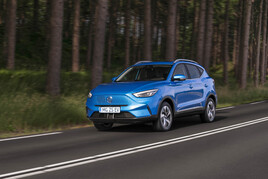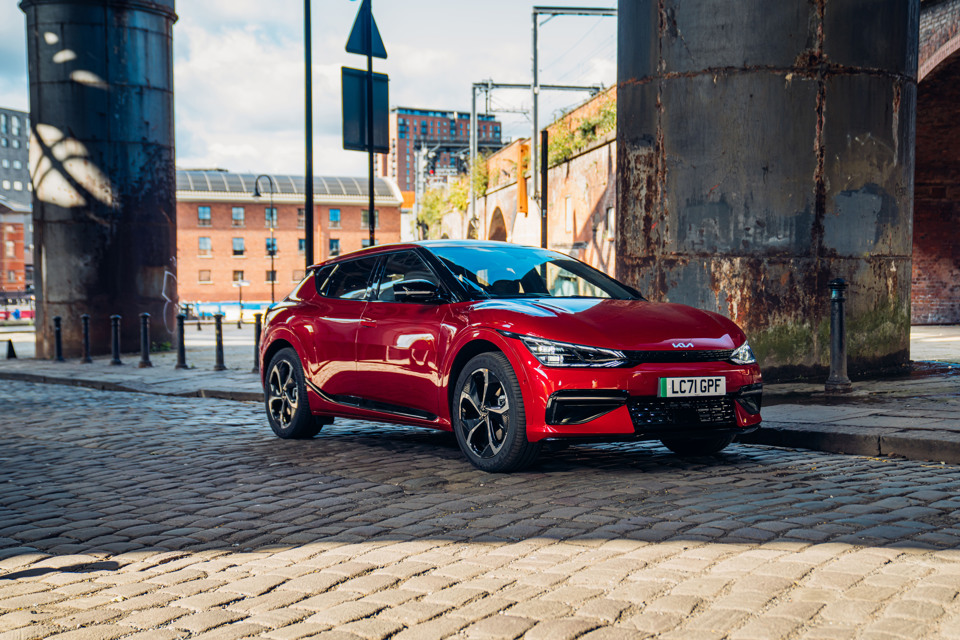Auto Trader has called for incentives and tax breaks to make electric vehicles (EV) more affordable and put the UK Government’s plan to ban pure petrol and diesel vehicles by 2030 “back on track”.
Research from the online car marketplace revealed that a 37% premium for a new EV over the alternative internal combustion engine (ICE) car – and 28% for a one-year-old used car – had combined with rising electricity costs to dent the appeal of zero-emissions personal transport.
Its Road to 2030 Report showed that, while electric car owners with a home charger can save up to £130 for every 1,000 miles by charging at off peak overnight rates, drivers using ultra rapid chargers, EVs currently cost £16 more to run.
Buyer interest in new EVs has slowed, falling or 65% since 2022, it said, and Government’s plans to introduce vehicle excise duty road tax payments for EVs in 2025 look sent to further hamper the acceleration of adoption.
 Ian Plummer, Auto Trader’s commercial director, who discussed the EV market in a recent episode of the AM News Show, said: “These are difficult times for the UK’s electric ambitions and we’re in danger of veering off-track.
Ian Plummer, Auto Trader’s commercial director, who discussed the EV market in a recent episode of the AM News Show, said: “These are difficult times for the UK’s electric ambitions and we’re in danger of veering off-track.
“Although used electric demand remains buoyant, the wider EV market is in a precarious position.
“To avoid more than just a small pothole on the road to 2030, more information, more incentives, and more equality is urgently required.”
To make the transition to electric fairer, Auto Trader is calling for:
Fairer charging costs: by equalizing VAT on public and private charging.
More incentives to make EVs affordable for all: such as reducing VAT on used EVs and lower or interest free rates on EV financing deals.
Initiatives to build both buyer and seller confidence in used EVs with a focus on battery health.
The Vehicle Remarketing Association (VRA) has previously called for Government to offer incentives to help used car buyers enter the EV market.
Signs that growing EV volumes – both in the new and used car market – are starting to bring prices down are already evident, however.
According to Auto Trader’s latest market data the average price of a used EV declined 17% in April.
In contrast, the average price of second-hand petrol and diesel cars are up 5.4% YoY (£16,312) and 3.4% (£16,518) respectively, whilst the broader market is up 3% YoY (£17,888) at the mid-April mark.
Earlier this week Cap HPI director of valuations Derren Martin also told AM that there was now scope for used EV buyers to be "more aspirational" with their purchasing plans after a recent slump in premium values brought vales closer to the market’s more affordable used EVs.
Both Martin and Plummer indicated that there was opportunity for car retailers looking to trade in used EVs, but that a keen eye on local demand and models was required.
 In March, a used petrol and diesel car took a respective average of 25 and 27 days to leave forecourts, according to Auto Trader, while EVs took 45 days. Last summer used electric vehicles were selling five days faster than petrol cars.
In March, a used petrol and diesel car took a respective average of 25 and 27 days to leave forecourts, according to Auto Trader, while EVs took 45 days. Last summer used electric vehicles were selling five days faster than petrol cars.
However, Auto Trader’s data revealed that the Kia EV6 (up to 12 months) took an average of just 16 days to sell, whilst Tesla’s Model 3 (three-to-five-years old) took just 14.
Significant regional variations in levels of supply and demand also meant that a 22-plate MG ZS EV is currently selling 18 days faster in Glasgow (33 days) than the national average (51), and 26 days faster than in Peterborough (59).
Plummer said: “With the EV market still maturing, its critical to follow the live retail data to identify profitable electric stock opportunities – to ensure you’re buying the right car for your market at the right price, selling them at the right price, and securing the best possible margin in the process.”















Login to comment
Comments
No comments have been made yet.